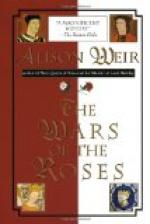“Use not that word again,” he said smilingly, yet with a certain imperiousness of manner that became him well. “I am thus solitary through the untoward accident that drowned the faithful follower who alone shared my design, and I knew not that I was in peril from these lawless men in one part of the realm more than the other. Paul, if I ever wield the kingly power, I will put down these bands of marauders with a strong hand. My peaceful subjects shall not go in terror of their liberties and lives. I would learn all their wrongs that I may right them. They shall know at last that a prince who loves them has been in their midst.”
“And, my lord, if you are thus alone and unattended, take me with you on your travels. Did you not promise me long years ago that the day would come when we should roam the world together? and has not the time come now?”
“Why, verily I believe it has,” cried Edward, with brightening eyes. “But, Paul, I have not asked you of yourself. Have you no other tie—no stronger claim? And how comes it that you are here, so far away from your home? I have asked not your history, though I have told mine own.”
“Mine is soon told, sweet prince,” said Paul. “I crave your pardon, but I know not how else to frame my speech.”
Then in a few graphic words he sketched the history of himself and his kindred during those troubled years of civil strife and of Edward’s reign; and young Edward listened with a sorrowful air and drooping mien, and heaved a deep sigh at the conclusion.
“Another faithful house ruined—another tale of woe for which it seems we unhappy princes are the cause. Nay, Paul, I know what you would say, brave loyal heart; but it lies heavy on my soul for all that. And having suffered thus, why tempt your fate anew by linking your fortunes with those of the hapless House of Lancaster? Why not—”
“My lord, break not my heart by rejecting my poor services,” cried Paul, plunging anew into the tale of his longing and ambition to be one day called the servant of the Prince of Wales; and then as both were young, both ardent, hot-headed, and hopeful, all stern and sorrowful thoughts were laid aside, and the two youths began to plan with eager vehemence the future of adventure which lay before them.
“And first, Paul, this you must learn once and for all: I am prince no more, but Edward alone, Edward Stukely—for I will e’en borrow your good name—your younger brother, who seeks his fortune with you. I will pass as cousin here, where you are known, but elsewhere it shall be as brothers we will travel. This strange likeness will be my best safeguard, for none will doubt that we are close akin. Not as knight and squire, as once we thought, will we roam the world in search of adventure. This little realm of England will suffice us, and hand in hand as brothers will we go. But methinks we shall surely meet as many strange adventures as in our dreams; and if I ever sit at last on England’s throne, this journey of thine and mine will be for years the favourite theme of minstrels to sing in bower and hall.”




